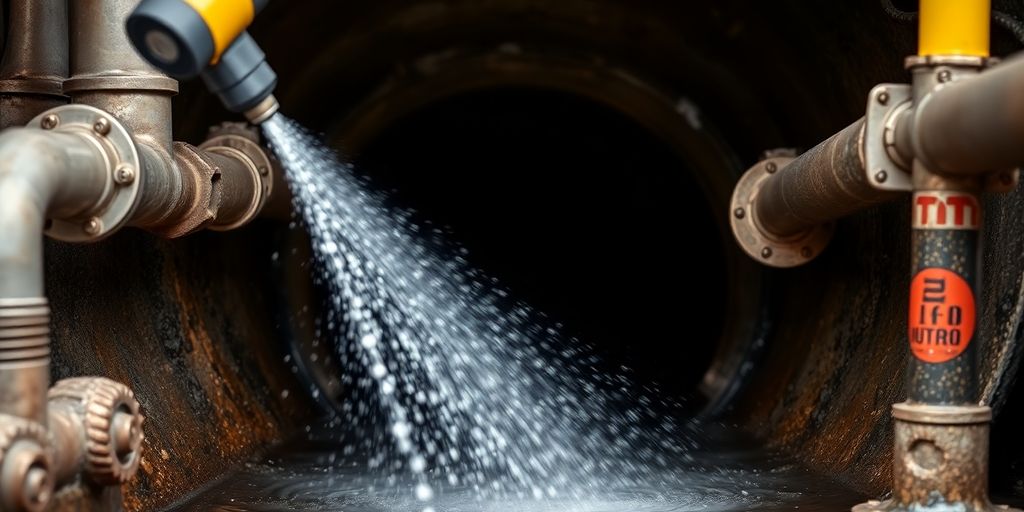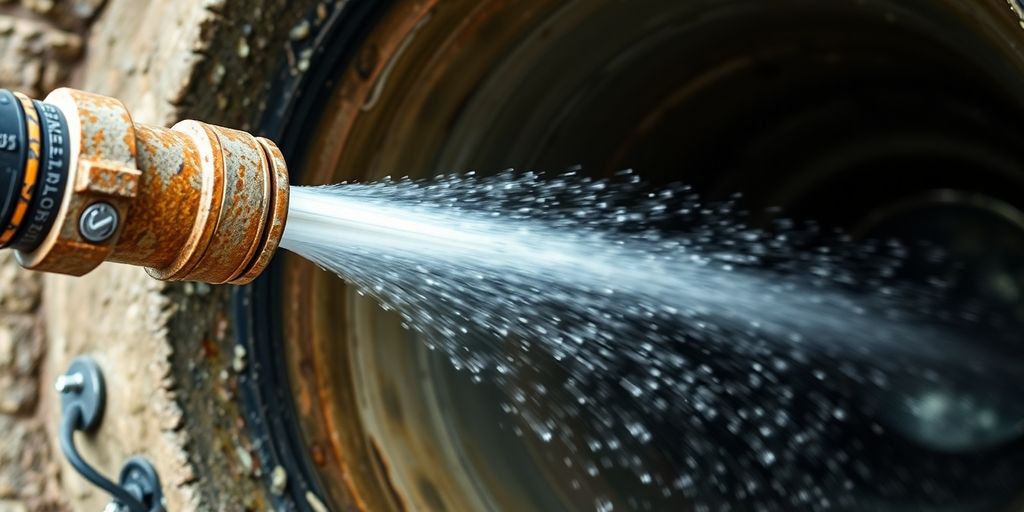
How Hydro Jetting Can Resolve Sudden Sewer Backups Fast
How Hydro Jetting Can Resolve Sudden Sewer Backups Fast If you’ve ever dealt with a sudden sewer backup, you know how frustrating and messy it
Plumbing problems can be a nightmare for homeowners and renters alike. From unexpected leaks to clogged drains, these issues often lead to costly repairs and major inconveniences. But what if plumbing problems could be prevented? By taking proactive measures and partnering with a reliable plumber, you can save time, money, and stress. In this article, we’ll explore ways to keep your plumbing system in tip-top shape, ensuring peace of mind for years to come.
Ignoring minor plumbing issues can lead to bigger, more expensive problems down the line. A small leak, for instance, can escalate into water damage, mold growth, or even structural damage to your home. Preventative maintenance helps catch these issues early, saving you from surprise expenses.
A professional plumbing inspection identifies potential weak points in your system, such as aging pipes or slow drains. Fixing these issues before they worsen can save hundreds, if not thousands, of dollars in emergency repair costs.
Minor issues like slow-draining sinks or low water pressure are often symptoms of larger problems. Regular maintenance ensures these warning signs are addressed before they cause a crisis.
Experienced plumbers not only fix problems but also provide expert advice to maintain your system. They use advanced tools to detect hidden issues and ensure your plumbing is in optimal condition.
Clogs are one of the most common plumbing problems, often caused by grease, hair, soap scum, or foreign objects. Prevent clogs by using drain covers, avoiding pouring grease down the sink, and regularly cleaning your drains.
Leaky faucets may seem minor, but they waste water and increase your utility bills. These leaks often result from worn-out washers or damaged seals. Replacing these components promptly can prevent further damage.
Frozen pipes can burst and cause extensive water damage. To avoid this, insulate your pipes, maintain a consistent indoor temperature, and let faucets drip slightly during freezing weather.
Hard water can cause mineral buildup in your pipes and appliances, reducing their efficiency and lifespan. Installing a water softener can help mitigate these effects and protect your plumbing.
A reliable plumber should have strong customer reviews, transparent pricing, and a proven track record. Look for plumbers who offer 24/7 emergency services to ensure help is always available when you need it.
Plumbing emergencies don’t wait for convenient times. Partnering with a service that provides immediate assistance gives you peace of mind, knowing help is just a phone call away.
Many plumbing companies offer maintenance plans that include annual inspections and discounted services. These plans provide consistent care for your system and save you money over time.
Avoid flushing non-degradable items down the toilet or pouring grease into the sink. Use drain covers to catch debris and clean your drains regularly with eco-friendly solutions.
High water pressure can damage your pipes and fixtures over time. Invest in a pressure regulator to keep water pressure within safe limits.
Drain covers are a simple, cost-effective way to catch hair, food particles, and other debris that can clog your plumbing.
While DIY maintenance is helpful, some problems require professional expertise. If you notice persistent issues like slow drains or water discoloration, call a licensed plumber.
Knowing your plumbing system is well-maintained removes the stress of unexpected breakdowns. It ensures you’re prepared for any potential issues, no matter the season.
Preventative care may seem like an extra expense, but it pays off in the long run. Avoiding costly repairs and water damage saves you time and money while maintaining the value of your property.
Frequently Asked Questions about Plumbing Repair in Calgary
Plumbing systems should be inspected annually to identify potential issues and ensure they’re functioning efficiently.
Clogs often result from grease buildup, hair, soap scum, or foreign objects. Using drain covers and avoiding improper disposal can help.
Yes! Insulating pipes, keeping a trickle of water running, and maintaining a warm home can prevent pipes from freezing.
While there is a cost associated with regular maintenance, it’s much cheaper than emergency repairs caused by neglect.
Look for plumbers with good reviews, transparent pricing, and 24/7 emergency services. Referrals from friends and family can also help.
Magna ac placerat vestibulum lectus mauris ultrices eros in cursus. Viverra aliquet eget sit amet. Volutpat consequat mauris nunc congue nisi vitae suscipit tellus.

How Hydro Jetting Can Resolve Sudden Sewer Backups Fast If you’ve ever dealt with a sudden sewer backup, you know how frustrating and messy it

Can a Faulty Check Valve Cause a Sump Pump to Shut Down? Sump pumps are essential for keeping basements dry, especially during heavy rain. One

Can Hydro Jetting Damage Old Pipes in Calgary? What You Should Know If you have old pipes in Calgary, you might be wondering about the